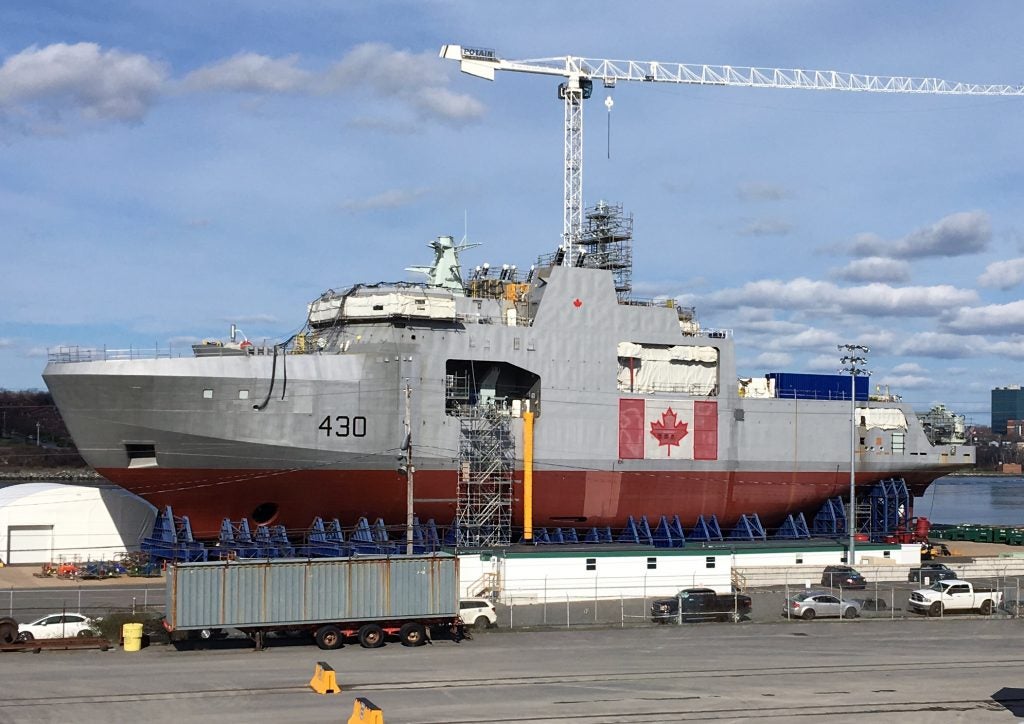Royal Canadian Navy to Commission HMCS Harry DeWolf
On 26 June, the Royal Canadian Navy (RCN) is set to commission its newest surface combatant, HMCS Harry DeWolf. Harry DeWolf is the lead ship of a class of six Arctic Offshore Patrol Vessels (AOPV) which are under construction for the RCN. The six vessels for the RCN are also complemented by an additional two, modified variants, destined for the Canadian Coast Guard (CCG). In total, Irving Shipbuilding is set to build eight ships of this type.
Harry DeWolf’s commissioning on Saturday comes eleven years after the AOPV project was formally launched, with the announcement of the National Shipbuilding Procurement Strategy in 2010. It also marks just under a year since the vessel was first handed over to the RCN in July 2020.
The AOPV project has not been without controversy. The ships have been criticised for allegedly being deficient in both of their designed roles, offshore patrol and Arctic patrol, as a result of their multirole nature. Criticisms have focused on the ship’s Polar Class rating of PC 5, which allows “Year-round operation in medium first-year ice which may include old ice inclusions” as well as the vessels comparatively slow top speed of 17 knots. Infamously, the ships were labelled as “Slushbreakers”.
The Harry DeWolf class has also been criticised as being under-armed, with the ships’ weapons suite consisting of two 50 calibre machine guns and a single 25mm autocannon.
Speaking to Overt Defense, Timothy Choi, a fellow at the Canadian Global Affairs Institute addressed the claims of undergunning and poor capability. Discussing the supposedly lacking weapons complement, he said:
“I think the 25mm is sufficient for their constabulary purpose. Use of force for law enforcement, such as fisheries patrols, is incredibly rare and only employed as a last resort after every non-violent means has been exhausted. By that time, you’re probably quite close to the offending vessel, so a long range weapon isn’t necessary, and, of course, a 25mm is more than enough to penetrate and hold at risk any civilian vessel.”
He also noted that many of the criticisms relating to the ship’s supposed inability to perform their designated roles fail to take into account the unique nature of their mission, and the conditions that the RCN expect to operate in.
“Obviously there were some sacrifices made to the AOPV design to ensure its ice capability – it’s fairly slow, though not any slower than the oft-touted Danish Knud class, and only 3-4 knots slower than the longer Danish Thetis class.”
In a separate article, written in 2015 for the Conference of Defence Associations Institute’s (CDAI) On Track journal, he also pointed out that “the other four Arctic Ocean navies and coast guards lack an armed vessel known to exceed the AOPS’ Polar Class 5 standard.”
This assertion seemingly remains true today, even with the much-publicized construction of Ice capable vessels armed with anti-ship missiles for the Russian Navy, which are rated for a similar amount of ice compared to Polar Class 5.
The commissioning of HMCS Harry DeWolf at CFB Halifax on Saturday is expected to be covered extensively by RCN Social Media channels.
Thanks to Timothy Choi for assistance with this article, find him on Twitter @Timdotchoi

